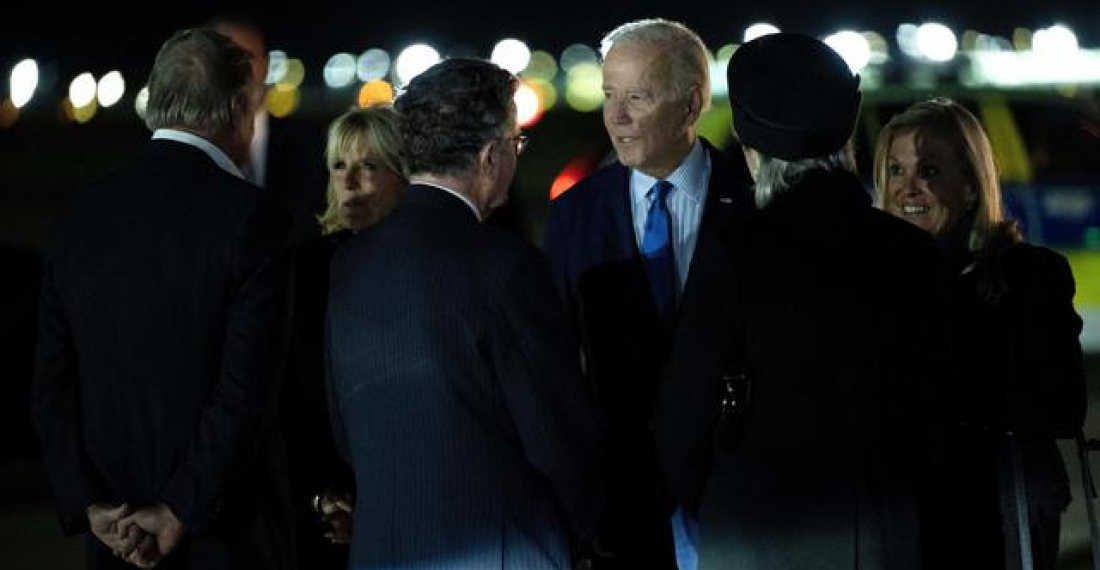World leaders have descended on London this weekend ahead of Monday's funeral of Queen Elizabeth II who died on 8 September.
US President Joe Biden is among the world leaders already in the British capital. The fifty six Commonwealth countries, who were held in special affection by the Queen, will all be fully represented, most of them by their heads of state or prime ministers.
Canada's Prime Minister Justin Trudeau, Australia's Prime Minister Anthony Albanese and New Zealand's Prime Minister Jacinda Ardern, Bangladeshi Prime Minister Sheikh Hasina and Sri Lankan President Ranil Wickremesinghe are already in London India will be represented by President Droupadi Murmu.
From Europe, French President Emmanuel Macron, Irish Taoiseach Micheal Martin, German President Frank-Walter Steinmeier and Italian President Sergio Mattarella are among the other world leaders expected to attend.
Members of royal families from across Europe will also be present.
China will be represented by Vice President Wang Qishan.
Many of the guests are expected to pay their respects to the Queen at her lying-in-state in Westminster Hall and sign a book of condolence at Lancaster House.
King Charles III will host a reception at Buckingham Palace on Sunday.
For many leaders, it will be their only chance to meet collectively and engage in some diplomacy.
Saudi Crown Prince, Mohammed bin Salman, and other senior members of the royal families of the Gulf states, all of who have a close relationship with the British Royal family will also attend.
Representatives from Russia, Belarus, Myanmar, Syria, Venezuela and Afghanistan have not been invited, whilst Iran, North Korea (DPRK) and Nicaragua have only been invited to send ambassadors, rather than heads of state.
In Russia in particular, the snub is felt acutely. "We see this British attempt to use the national tragedy, which has touched the hearts of millions of people around the world, for geopolitical purposes to settle scores with our country... as deeply immoral," foreign ministry spokeswoman Maria Zakharova said. Earlier president Vladimir Putin had sent a very warm message of condolences to King Charles III - an indication of the special place that the British Royal family hold in Russia, regardless of the current diplomatic crisis between the two countries
Monday's funeral will be culmination of days of public events to mark the death of Queen Elizabeth II and the accession to the throne of her son, King Charles III.
Tributes for Queen Elizabeth have come from across the UK, the Commonwealth and the rest of the world, with most highlighting the Queen's extraordinary sense of duty and service, served with commitment over the seventy years of her reign.
Tens of thousands of people queued for many hours to pass by the coffin of Queen Elizabeth II which has been laying in state at London's Westminster Hall, a reflection of the very solid bond that the Queen had forged with her people during her long reign.
source: commonspace.eu
photo: US President Joe Biden arrives in London on Saturday (17 September) to attend the funeral of HM Queen Elizabeth II







